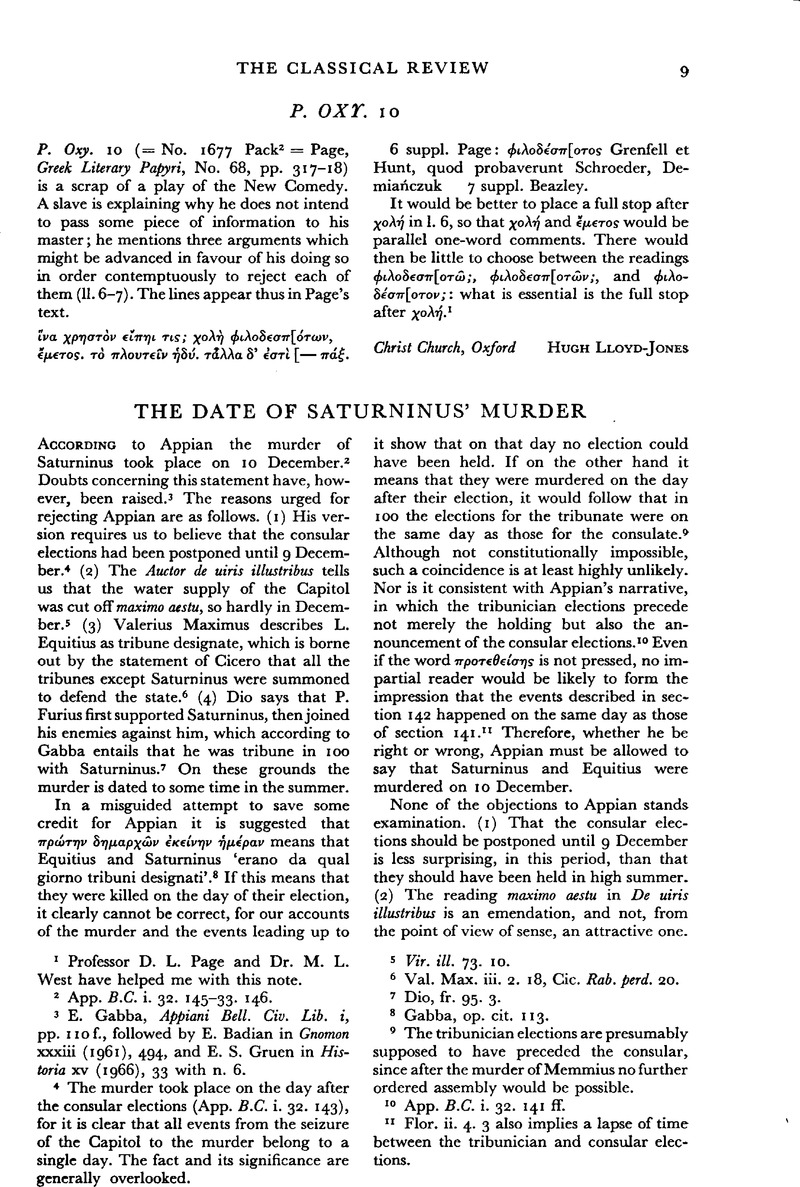No CrossRef data available.
Published online by Cambridge University Press: 27 February 2009

page 9 note 2 App. B.C. i. 32. 145–33. 146.
page 9 note 3 E. Gabba, Appiani Bell. Civ. Lib. i, pp. 110f., followed by Badian, E. in Gnomon xxxiii (1961), 494Google Scholar, and Gruen, E. S. in Historia xv (1966), 33 with n. 6Google Scholar.
page 9 note 4 The murder took place on the day after the consular elections (App. B.C. i. 32. 143), for it is clear that all events from the seizure of the Capitol to the murder belong to a single day. The fact and its significance are generally overlooked.
page 9 note 5 Vir. ill. 73. 10.
page 9 note 6 Val. Max. iii. 2. 18, Cic. Rab. perd. 20.
page 9 note 7 Dio, fr. 95. 3.
page 9 note 8 Gabba, op. cit. 113.
page 9 note 9 The tribunician elections are presumably supposed to have preceded the consular, since after the murder of Memmius no further ordered assembly would be possible.
page 9 note 10 App. B.C. i. 32. 141 ff.
page 9 note 11 Flor. ii. 4. 3 also implies a lapse of time between the tribunician and consular elections.
page 10 note 1 If the consular elections were not post-poned, we should assume that they were held, not in July, but at the normal time, in October or early November. To such a date maximo aestu is no more suitable than it would be to 10 December.
page 10 note 2 I cannot understand the use that Gabba makes of this passage; if Equitius was murdered on his first day as tribune designate, he would hardly have had time to excite seditious movements.
page 10 note 3 Carney's, T. F. suggestion (A Biography of C. Marius, p. 46, n. 216Google Scholar) that Equitius was regarded as designate on 10 December and so was not included in the list of tribunes cannot be right; if Equitius was not a tribune on that day, then neither was Saturninus himself or any of the eight who supported Marius.
page 10 note 4 Thus Carney, loc. cit., rightly.